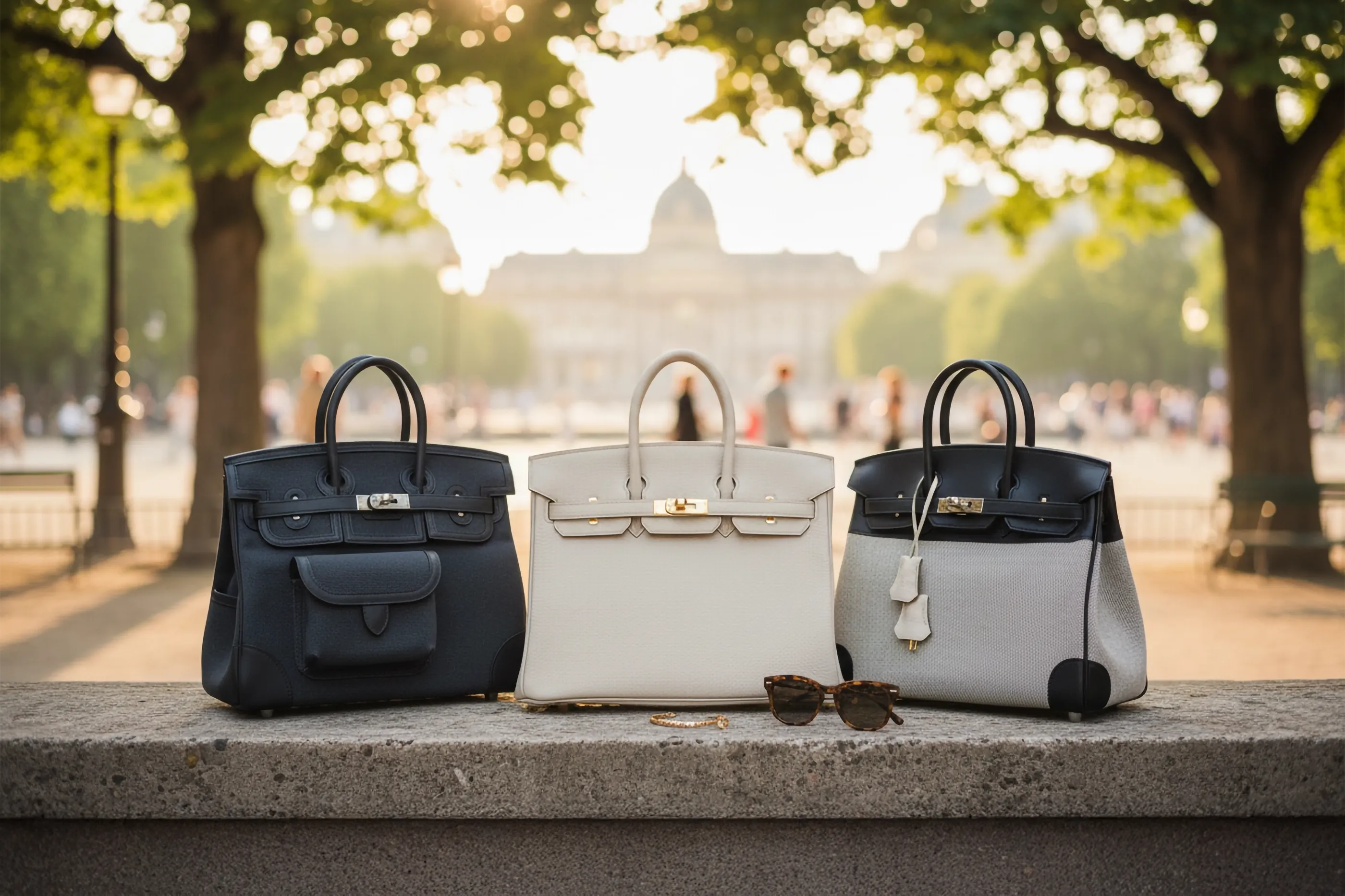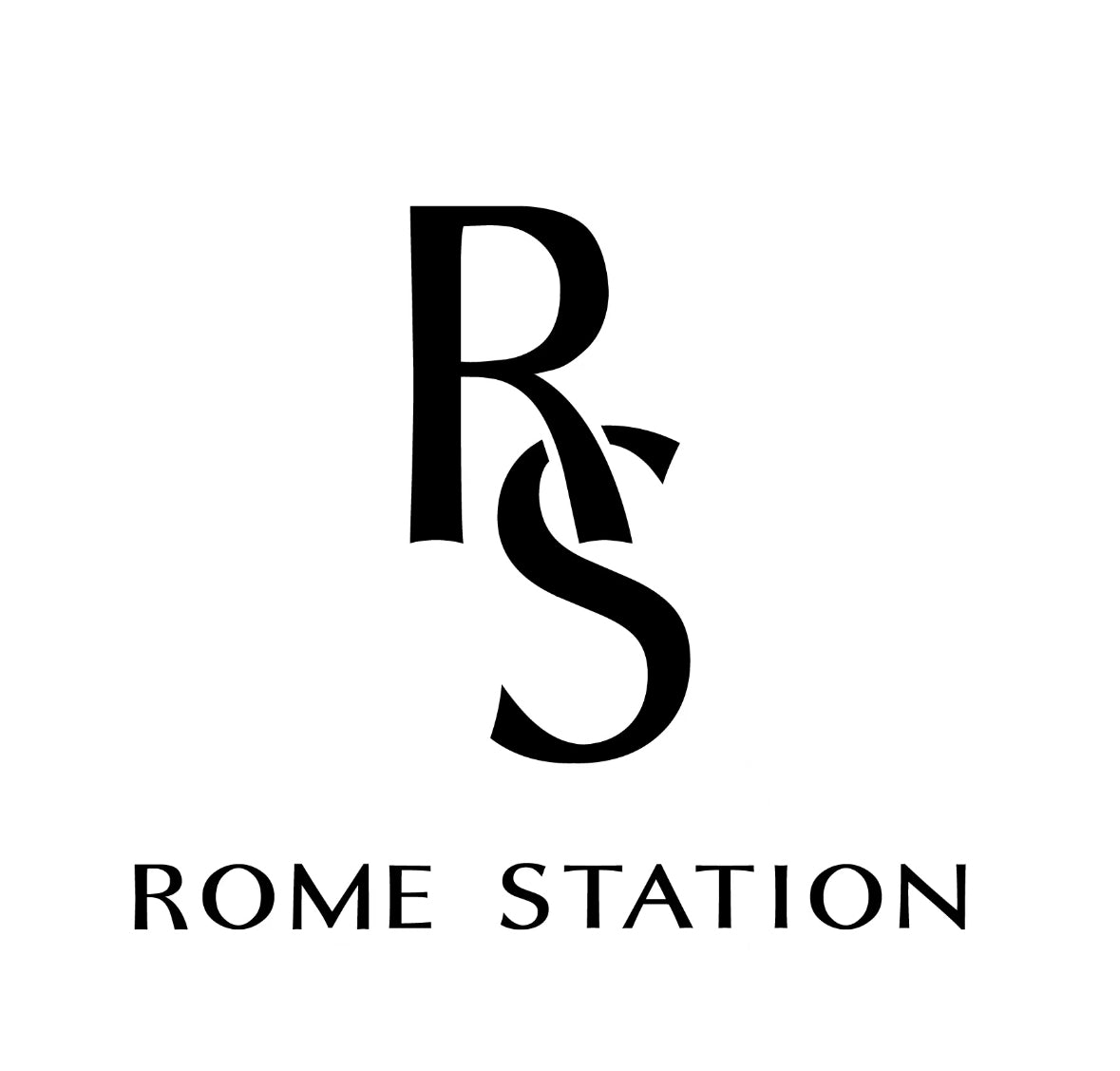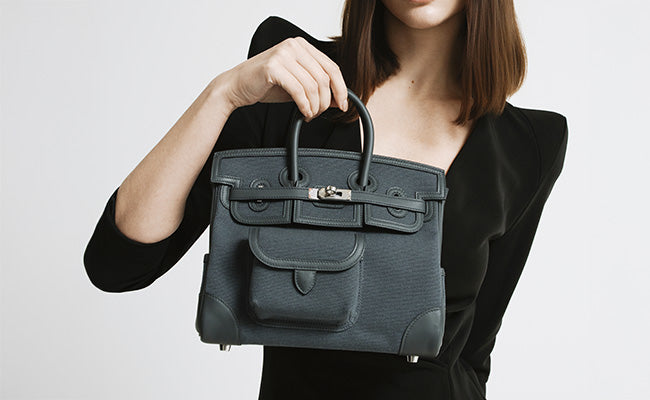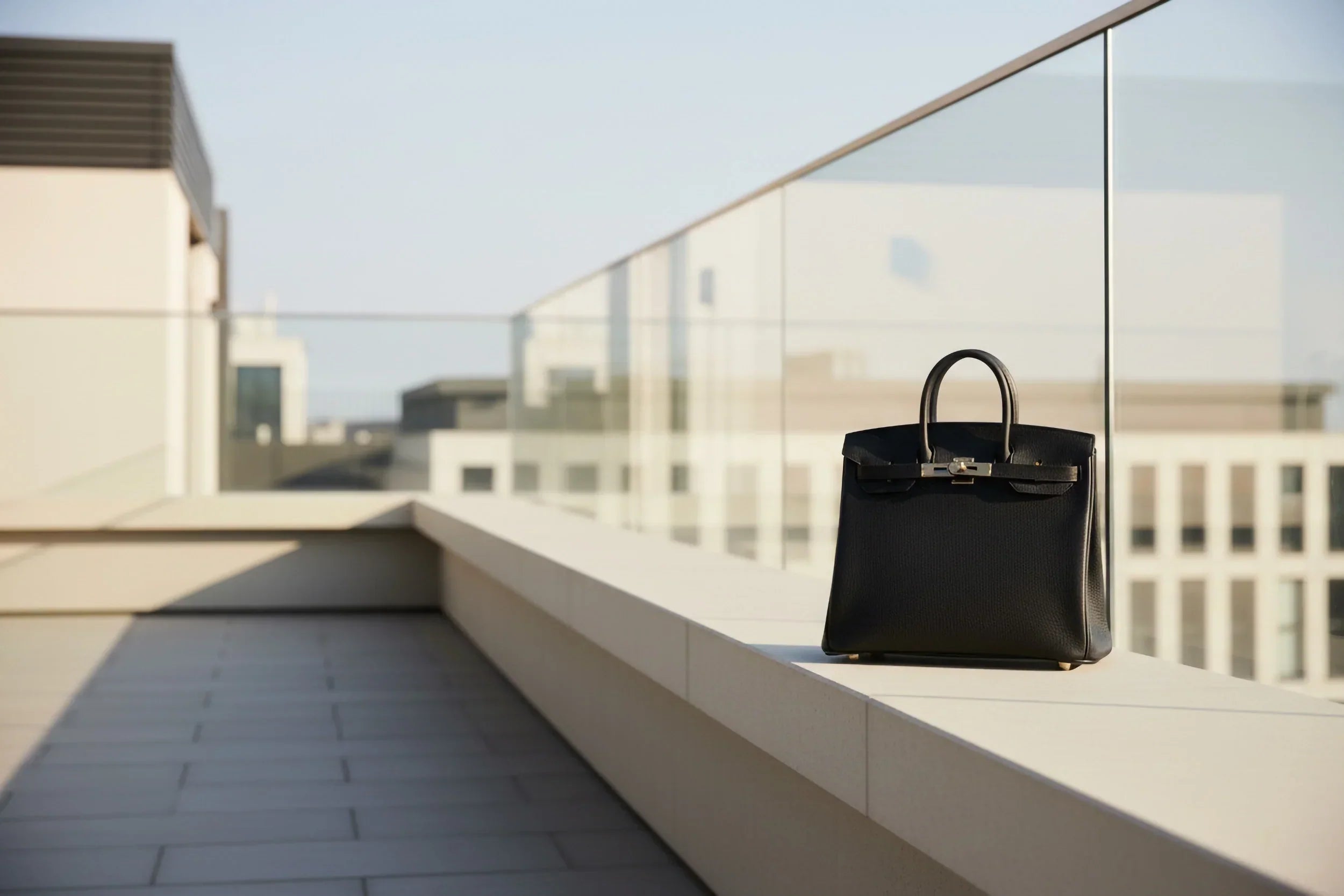文章: Pros and Cons of Selling Your Hermès Bag Through Consignment

Pros and Cons of Selling Your Hermès Bag Through Consignment
Check out our Hermès collection and Birkin bags!
Selling a Hermès bag through consignment can feel like venturing into the unknown, especially when you’re dealing with something that might be worth more than your car. We’ve all heard stories of Birkins and Kellys going for wild sums at auction, but figuring out the best way to sell is a whole different beast.
Consignment sometimes brings in premiums up to 35-40% over retail, if you’re lucky enough to catch the right buyer. But it’s not all upside. You’ll need patience, and those commission fees can take a real bite out of your profits. Unlike a direct sale, where you get paid right away, consignment means your bag sits in someone else’s shop while you wait for that one person who “gets it.”
This choice isn’t just about cash, it’s about balancing convenience, timing, and how much you actually want to make. Let’s break down the basics, from authentication to fees, so you can figure out what fits your goals and timeline.
Key Takeaways
- Consignment can mean better returns than a direct sale, but you’ll wait longer and pay commission fees (10-40%).
- Using a reputable consigner means pro authentication and better marketing, which attracts serious buyers.
- Success comes down to the right platform, market timing, and knowing your bag’s condition and appeal.
What Is Consignment for Hermès Bags?
Consignment lets Hermès bag owners team up with established boutiques or platforms that handle the entire selling process. You keep ownership until the bag sells. This is a far cry from direct resale, and it opens doors to niche luxury buyers.
How Consignment Differs from Direct Resale
When you consign, you keep ownership until a buyer comes along. The shop acts as your middleman, not your buyer.
Key Differences:
| Consignment | Direct Resale |
|---|---|
| You keep ownership until sold | Immediate ownership transfer |
| Payment comes after sale | Upfront payment |
| Higher potential returns | Fixed, immediate payout |
| Longer wait | Quick transaction |
With direct resale, you sell your Birkin or Kelly straight away to a buyer or dealer. You get paid instantly, but usually for less.
Consignment shops take care of authentication, photos, marketing, and customer service. You just drop off your bag and hope the right buyer comes knocking.
The main trade-off? Time versus money. Consignment can bring better returns, sometimes 35-40% more for rare pieces, but it’s not for the impatient.
Typical Consignment Process for Luxury Bags
Most consignment processes look pretty similar, though each platform has its quirks.
Initial Assessment You send in photos and details about your Hermès bag online or visit the boutique. They check for authenticity, condition, and market demand.
Agreement and Pricing The shop suggests a price and lays out their commission. Usually, you keep 60-80% of the sale, depending on the platform and your bag.
Professional Preparation They take high-quality photos, write up a detailed description, and list your bag on their website, socials, and sometimes at auction.
Sale and Payment After your bag sells, the shop deducts its cut and pays you, often within 30 days of the sale.
Many shops cover your bag with insurance while it’s in their hands, which is one less thing to stress about.
Top Consignment Platforms and Boutiques
The Hermès resale world is full of reputable options, each with its own focus and fee structure.
Online Platforms Vestiaire Collective gives you global reach and competitive commissions. The RealReal is all about authenticated luxury with slick marketing.
Specialty Boutiques Madison Avenue Couture zeroes in on Hermès bags and builds real relationships with consigners. They really know their Birkins and Kellys.
Local Consignment Stores Regional luxury shops offer a more personal touch and local market know-how. You can actually meet the staff and get a feel for their style.
Commission Rates Most places charge 20-40% commission. Higher-end specialists may charge more, but they often get results. If you have a rare or flawless bag, you might negotiate a lower rate.
Do your homework, look into each option’s authentication, insurance, and track record with Hermès before you hand over your bag.
The Pros of Selling Your Hermès Bag Through Consignment
Consignment services come with real perks for luxury sellers, mainly, access to premium pricing and pro-level marketing. These platforms attract buyers who are ready to pay what your Hermès is actually worth.
Achieving the Highest Selling Price
Consignment platforms often get better prices than direct sales or buyout sites. We’ve seen Birkins go for 35-40% above retail when the stars align.
The consignment setup can spark competition between buyers, sometimes even a bidding war, which pushes prices up. You’re not locked into lowball offers from resale companies.
Why prices go higher:
- Global collector networks
- No pressure to accept low offers
- Demand-driven pricing
- Potential for auctions
Consignment shops know how to handle negotiations and time the market for maximum return.
The Hermès secondary market isn’t like regular retail. Rare colors, limited editions, and pristine bags fetch the best money, and only specialized consignment shops really know how to tap into that.
Professional Exposure and Targeted Marketing
Consignment services offer marketing muscle that individual sellers just can’t match. They use pro photos, detailed listings, and post your bag everywhere that matters.
They’ve got databases of serious collectors. Your bag lands in front of people who are actively looking for authentic Hermès.
Marketing perks:
- Pro photography and styling
- Listings on multiple platforms
- Email blasts to collectors
- Social media and paid ads
You get to piggyback on their reputation, which draws in buyers who’d never risk buying from a random person online.
Consignment pros know what’s trending, which colors are hot, and when to list certain models for the best shot at a high price.
Expert Authentication and Buyer Trust
Established consignment shops have authentication down to a science. Their experts check every detail before your bag goes up for sale.
Buyers trust them because their reputation’s on the line. That trust means higher prices and quicker sales.
Authentication benefits:
- Professional verification
- Buyer confidence
- Fewer disputes
- Boosted marketability
They check everything, construction, hardware, provenance. Buyers don’t hesitate like they might with a private seller.
Consignment shops also deal with any post-sale questions. You won’t have to handle disputes or returns yourself.
The Cons of Selling Through Consignment
Consignment can help you get more for your Hermès, but it’s not always the right fit. The biggest downsides? You wait longer for your money, pay hefty fees, and lose some control over the sale.
Longer Wait Times to Receive Payout
Consignment takes patience. You won’t see cash until your bag actually sells. With direct resale, you get paid right away, but consignment can drag on for weeks or even months.
Popular models like the Birkin or Kelly in classic colors tend to move fast. Quirkier or seasonal pieces might sit in inventory for a while.
The luxury market is fickle. What’s hot now could cool off next month, and that can stretch your wait even more.
Some shops only pay monthly or quarterly, so even after your bag sells, you might wait weeks for the money.
Commission Fees and Reduced Profits
Consignment shops usually take 30-50% of the sale price. That’s a big chunk.
Say your Hermès sells for $8,000 and the shop takes 40%, you walk away with $4,800, and they keep $3,200.
There might be extra fees for photography, insurance, or storage. Sometimes shops also deduct payment processing fees or penalize you if you pull your bag before it sells. Always read the fine print.
Lack of Immediate Control Over the Sale
Once your bag is with the consignment shop, you’re not calling the shots on price or marketing. The shop decides how to present and promote it.
You can’t just drop the price or tweak your listing on a whim. Most agreements lock in pricing for a set period.
If you suddenly need cash or change your mind, pulling your bag out can mean fees or more waiting. That lack of flexibility can be a pain if your situation changes.
Consignment shops might not move as fast as you’d like, or pivot as quickly as you could if you sold it yourself.
Maximizing Value: Consignment Tips for Hermès Sellers
Getting your Hermès bag ready for consignment takes some work, but it can pay off big. Prep, documentation, and timing all play a role in getting the best price.
Preparing Your Hermès Bag for Sale
Condition is everything. A pristine Birkin or Kelly can go for 120% of retail, but a bag with wear might only get 60-70%.
Condition categories:
- Pristine: No wear at all, top dollar
- Excellent: Nearly flawless, tiny imperfections
- Very Good: Minor signs of age, usually 80-90% of retail
- Good: Noticeable wear, but still solid
- Fair: Flaws that really affect value
Consider Hermès spa treatments before consigning, restoration can bump your bag up a category and add thousands to the price.
Prep checklist:
- Professional cleaning and conditioning
- Polish hardware if needed
- Gather all original accessories (box, dustbag, receipt, lock, keys)
- Take clear, detailed photos from every angle
Receipts, care cards, and authenticity docs are huge for quota bags like Birkins and Kellys. These help justify a higher price and make the sale smoother.
Understanding Authentication Requirements
Every legit consignment shop insists on full authentication before they’ll take your bag. This protects both you and the buyer.
Authentication basics:
- Craftsman stamps and date codes
- Hardware weight and finish
- Leather grain and texture
- Stitching quality and color
- Stamping font consistency
Professional authenticators use special tools and deep experience to spot fakes.
Gather your documentation early, original receipts, authenticity cards, repair records. This makes the process smoother and helps you avoid headaches.
Some shops let you do a preliminary authentication before you ship your bag, saving time and shipping costs if there’s a problem.
Authentication usually takes 2-5 business days once your bag arrives. Experts check every detail against Hermès standards and records.
Timing Your Sale with Market Trends
Timing matters. Certain colors, sizes, and styles come and go in popularity, and that affects what you’ll get.
Best times to sell:
- Spring/summer for light colors (blanc, rose, orange)
- Fall/winter for darker shades (noir, gold, etoupe)
- Holidays for gift buyers
- Fashion week for peak luxury buzz
Birkin 25 and 30 sizes generally outperform bigger bags. Kelly 28 and 32 are also steady favorites.
Limited editions and discontinued hardware often fetch more than classics. Check recent sales for your bag’s specs before you set a price.
Other factors:
- Celebrity sightings
- Changes in Hermès boutique availability
- Economic shifts
- Social media and influencer trends
Keep an eye on luxury platforms and auction results to spot the best time to list. Sometimes waiting pays off.
Key Considerations When Choosing Consignment
Picking the right consignment partner for your Hermès bag is a big deal. You want someone with real expertise, a solid track record, and fair terms.
Selecting the Right Consignment Partner
The right consignment partner can totally change your selling experience. Look for someone who knows the Hermès secondary market inside and out.
Authentication is a must. Your partner should have certified experts who know Hermès craftsmanship, hardware, and serial numbers. One slip-up can hurt both your reputation and theirs.
Market reach counts. Shops with a strong online presence, social media following, and active client lists usually sell faster. Some even have waiting lists for Hermès.
Commissions vary a lot. Expect rates from 20% to 50%. Higher-end specialists might charge more, but they often deliver better results.
Track record is everything. Check their sales history, average time to sell, and client reviews. If they regularly get above-market prices for Hermès, you’re in good hands.
Transparency, Contract Terms, and Insurance
Contract terms set expectations for both parties, so it’s smart to comb through every clause before signing, especially those about pricing control and timelines.
Pricing control really depends on the partner. Some give us the final say on price drops, while others keep full authority after we agree to the starting price. We should get clear on their markdown policies and how quickly they expect things to move.
Insurance coverage is a must. Our bag needs to be fully insured against theft, damage, and loss from the moment they take possession. Always ask for proof and make sure we know how claims work if something goes wrong.
Payment terms can make a real difference for our cash flow. Most consignment partners send payment within a day or two after a sale, but a few might hold funds longer.
Duration clauses say how long our bag stays with the consignment partner. Most agreements run from 90 days to a year, sometimes with options to end early or automatically renew.
Comparing Consignment with Direct Resale
Direct resale gets us paid right away, but usually at a lower price than consignment. We walk out with cash, but we’re likely missing out on the premium that consignment partners can get.
Time investment is another big difference. With consignment, we do the initial handoff and that’s it. Direct resale means we’re taking photos, writing listings, and talking to buyers ourselves.
Pricing outcomes tend to favor consignment, especially for rare or in-demand Hermès bags. Consignment pros and their buyer networks often snag prices 15-25% higher than what we’d get selling directly.
Risk profiles aren’t the same, either. Consignment hands off authentication and transaction headaches to the experts. Direct resale? We’re stuck dealing with disputes and returns.
Market timing is more flexible with consignment. Partners can tweak prices for seasonal demand or market shifts, while direct resale locks us into whatever the market’s doing right now.
The Impact of Consignment on the Hermès Resale Market
Consignment has totally changed how we look at and trade Hermès bags. There’s this whole parallel economy now, where scarcity pushes prices way past retail. It’s boosted the brand’s prestige and turned luxury handbags into legitimate investment assets.
How Consignment Shapes Market Prices
Consignment has created a kind of artificial scarcity, sending Hermès bag prices soaring above retail. On the secondary market, it’s not unusual to see pieces selling for 200-500% more than their original price.
Sellers can set higher prices with consignment than they’d get with immediate buyouts. A Birkin bought for $10,000 at retail might pull $20,000 or more on a consignment platform.
Key price factors consignment influences:
- Limited supply: Consignment shops manage inventory flow
- Authentication services: Pro verification adds trust and value
- Market timing: Sellers can wait for the right moment
- Condition premiums: Mint bags fetch much higher prices
This system creates a “Veblen good” effect, higher prices actually make these bags more desirable, which is kind of wild.
Brand Perception and Exclusivity
Consignment has, weirdly enough, made Hermès seem even more exclusive. The booming secondary market just makes the brand hotter and backs up the whole quota system.
We’ve seen consignment make pre-owned luxury buying totally acceptable, even smart, among the wealthy. Buying secondhand used to feel less prestigious, but now it’s almost savvy.
Strong resale values also reassure new Hermès buyers. Knowing a Birkin or Kelly will likely hold, or even gain, value makes that first big purchase less daunting.
Impact on brand dynamics:
- Supports high retail pricing
- Sparks urgency for new releases
- Turns bags into collectibles
- Keeps waiting lists and quotas relevant
Investment Potential for Hermès and Other Luxury Brands
Hermès bags have become an alternative investment, some models beat stocks or gold. Consignment gives these bags the liquidity needed for that to work.
Hermès vs. other luxury brands (average appreciation):
- Hermès Birkin: 14.2% annually
- Chanel Classic Flap: 8.1% annually
- Louis Vuitton Neverfull: 2.3% annually
Consignment sites now let us track historical pricing and trends. This transparency helps collectors make smarter, more strategic buys.
The investment angle has pulled in buyers who never would’ve considered a luxury bag. Some financial advisors even suggest quota bags as portfolio diversifiers, right alongside art or gold.
Frequently Asked Questions
Consigning your Hermès bag means understanding commissions, valuation, timing, and hidden fees that might chip away at your final payout.
What are the top benefits and drawbacks of consigning my Hermès bag instead of direct selling?
The biggest plus with consignment is hands-off, professional service, expert photos, authentication, marketing, buyer communication, all handled for us. These shops have buyers lined up and looking for Hermès.
But we’re giving up 20-40% of the sale to commissions, and we might wait weeks or months for payment instead of getting cash on the spot.
It’s really a trade-off: convenience versus maximum profit. Direct selling keeps more money in our pocket, but takes a lot more effort.
How do consignment shops like Fashionphile determine the value of a pre-loved Hermès bag?
They look at four main things: model demand, condition, color popularity, and current market trends. Birkins and Kellys always get top dollar; less iconic styles drop faster.
Condition is huge. Even small scratches or a bit of corner wear can lower the price by hundreds.
Neutral colors, think Etoupe, Gold, Black, hold value better than bold or seasonal shades. And what’s hot now might not be in a few months.
Could you shed some light on the consignment process and how it stacks up against immediate buyout options like Rebag?
With consignment, we list the bag and wait for a buyer. We usually get 60-80% of the final sale price after commission. It takes about 30-90 days, give or take.
Immediate buyouts give us cash right away, but at a lower price, typically 40-60% of retail. Companies like Rebag will appraise our bag and make a take-it-or-leave-it offer.
Consignment is for those who want to maximize profit, while buyouts are for those who need quick cash. It really depends on our priorities.
When opting for a consignment sale, how long does it typically take for a Hermès bag to find a new owner?
Popular Hermès models in great shape often sell within 30-60 days. Birkins in classic colors and common sizes can move even faster.
Less popular styles or bags with wear can sit for 3-6 months. Rare colors or limited editions might fly off the shelf, or linger if demand’s just not there.
Most consignment contracts have price drop clauses after 60-90 days if the bag hasn’t sold. It moves things along but cuts into our payout.
What should I consider to ensure I'm getting the most value when consigning a luxury bag like Hermès?
Clean and condition the bag before consigning, a professional touch can add serious value. Original boxes, dust bags, and receipts make a big difference, too.
Check recent sale prices for the exact model, size, and color. This info helps us negotiate better with the consignment shop.
Go with consigners who have a strong online presence and global reach. More eyes mean faster sales and usually better prices.
Are there any unexpected costs or fees I should be aware of when consigning my designer handbag?
Besides the usual commission rates, some places tack on photography fees, insurance charges, or even storage fees if your bag doesn't sell. These extras can really chip away at your earnings if you're not careful.
You'll probably have to cover shipping both ways unless your bag sells for a high enough price. International shipping? That can easily run $50 to $100 each way.
If you're working with consigners overseas, you might get hit with payment processing and currency conversion fees too. It's smart to ask for a full list of possible deductions before you agree to anything.



